
Abraham Joshua Heschel was a Polish-American rabbi and one of the leading Jewish theologians and Jewish philosophers of the 20th century. Heschel, a professor of Jewish mysticism at the Jewish Theological Seminary of America, authored a number of widely read books on Jewish philosophy and was a leader in the civil rights movement.

A kollel is an institute for full-time, advanced study of the Talmud and rabbinic literature. Like a yeshiva, a kollel features shiurim (lectures) and learning sedarim (sessions); unlike most yeshivot, the student body of a kollel typically consists mostly of married men. A kollel generally pays a regular monthly stipend to its members.

The Musar movement is a Jewish ethical, educational and cultural movement that developed in 19th century Lithuania, particularly among Orthodox Lithuanian Jews. The Hebrew term Musar (מוּסַר), is adopted from the Book of Proverbs (1:2) describing moral conduct, instruction or discipline, educating oneself on how one should act in an appropriate manner. The term was used by the Musar movement to convey the teachings regarding ethical and spiritual paths. The Musar movement made significant contributions to Musar literature and Jewish ethics. The movement has been revived in the 21st century amongst Jews of all denominations, particularly in the United States.
Jewish religious movements, sometimes called "denominations", include diverse groups within Judaism which have developed among Jews from ancient times. Today in the west, the most prominent divisions are between traditionalist Orthodox movements and modernist movements such as Reform Judaism originating in late 18th century Europe, Conservative originating in 19th century Europe, and smaller others.
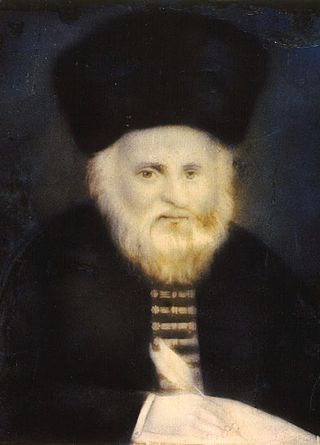
Elijah ben Solomon Zalman,, also known as the Vilna Gaon or Elijah of Vilna, or by his Hebrew acronym Gra, was a Lithuanian Jewish Talmudist, halakhist, kabbalist, and the foremost leader of misnagdic (non-hasidic) Jewry of the past few centuries. He is commonly referred to in Hebrew as ha-Gaon mi-Vilna, "the genius from Vilnius".
Yisrael ben Ze'ev Wolf Lipkin, also known as "Israel Salanter" or "Yisroel Salanter", was the father of the Musar movement in Orthodox Judaism and a famed Rosh yeshiva and Talmudist. The epithet Salanter was added to his name since most of his schooling took place in Salant, where he came under the influence of Rabbi Yosef Zundel of Salant. He was the father of mathematician Yom Tov Lipman Lipkin.
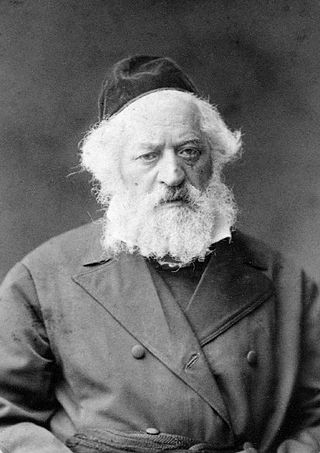
Yitzchak Elchanan Spektor or Isaac Elhanan Spector was a Russian rabbi, posek and Talmudist of the 19th century.

Telshe Yeshiva is a yeshiva in Wickliffe, Ohio, formerly located in Telšiai, Lithuania. During World War II the yeshiva began relocating to Wickliffe, Ohio, in the United States and is now known as the Rabbinical College of Telshe, commonly referred to as Telz Yeshiva, or Telz in short.

The Jewish Theological Seminary of Breslau was an institution in Breslau for the training of rabbis, founded under the will of Jonah Fränckel, and opened in 1854. It was the first modern rabbinical seminary in Central Europe, an academic precursor to today’s Conservative movement, and a center of Wissenschaft des Judentums. The seminary, at what is now an empty building plot in 14-18 Wlodkowica Street, was closed in 1938 by Nazi Party officials after the Kristallnacht.

Yeshivas Etz Ḥayyim, commonly called the Volozhin Yeshiva, was a prestigious Lithuanian yeshiva located in the town of Volozhin, Russian Empire. It was founded around 1803 by Rabbi Ḥayyim Volozhiner, a student of the famed Vilna Gaon, and trained several generations of scholars, rabbis, and leaders. It is considered the first modern yeshiva, and served as a model for later Misnagedic educational institutions.
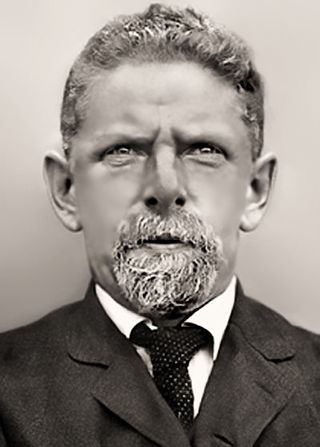
Vladimir Ilyich Jochelson was a Russian ethnographer and researcher of the indigenous peoples of the Russian North.

Samuel Joseph Fuenn, also known as Rashi Fuenn and Rashif (רשי״ף), was a Lithuanian Hebrew writer, scholar, printer, and editor. He was a leading figure of the eastern European Haskalah, and an early member of Ḥovevei Zion.
David ben Meir Cohen Friesenhausen (1756–1828) was a German-Hungarian astronomer, maskil, mathematician, and rabbi. Friesenhausen was one of the first proponents of Torah im Derech Eretz, a philosophy of Orthodox Judaism that formalizes a relationship between traditionally observant Judaism and the modern world. He proposed a dual curriculum of Jewish and secular studies for all rabbinic candidates, a radically innovative idea at that time. Friesenhausen wrote Mosedot Tebel and Kelil Heshbon. In the former, Friesenhausen writes in support of the Copernican heliocentrism, one of the first Jews to do so.
Crown rabbi was a position in the Russian Empire given to a member of a Jewish community appointed to act as an intermediary between his community and the Imperial government, to perform certain civil duties such as registering births, marriages, and divorces. Because their main job qualification was fluency in Russian, crown rabbis were typically considered agents of the state by members of their own communities, not true rabbis, and they often had no education in or knowledge of Jewish law.
Rabbi Hillel Goldberg is an American newspaper publisher, author, scholar of modern Jewish history, and student of the Musar movement. He is editor and publisher of the Intermountain Jewish News in Denver, Colorado, and an ordained rabbi.
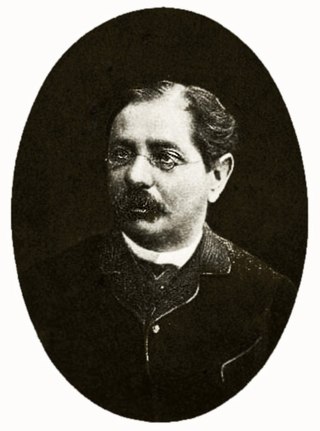
Lev Levanda was a Russian author, belletrist, and publicist. His sketches were often published under the pen name Ladnev.

This article presents the timeline of selected events concerning the history of the Jews in Lithuania and Belarus from the fourteenth century when the region was ruled by the Grand Duchy of Lithuania.
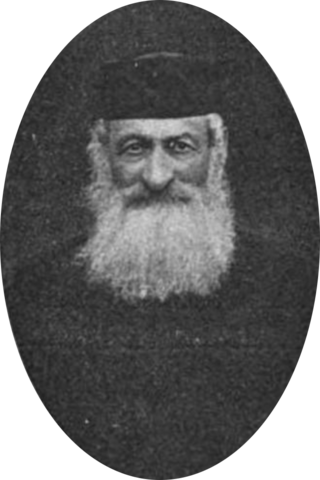
Solomon Zalkind Minor was a Lithuanian-Russian rabbi and writer.
Solomon Salkind was a Lithuanian Hebrew poet and educator.













